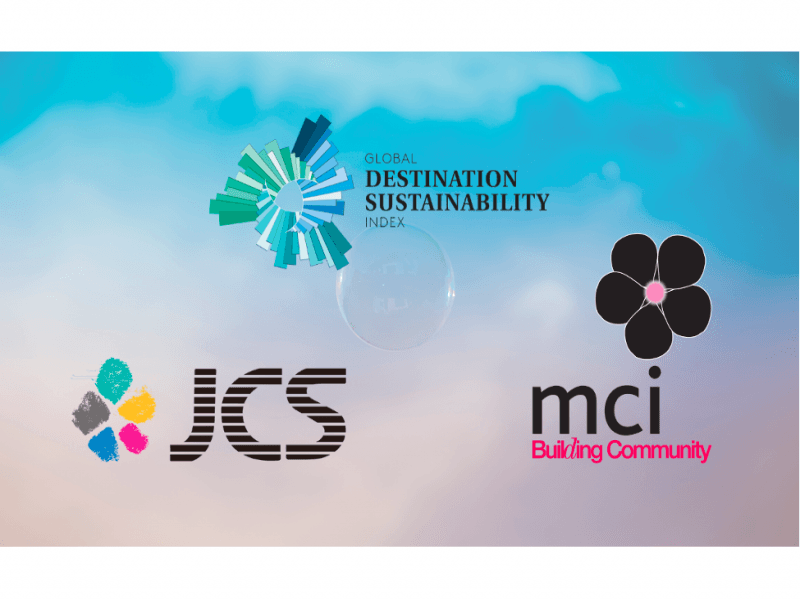June 3rd 2020. With Japan’s expanding commitment to become sustainable, the Global Destination Sustainability Index (GDS-Index), MCI and JCS join forces to accelerate the national goal of creating a regenerative tourism and events industry.
Strengthening national commitment
Japan has a long-standing culture of living harmoniously with nature, and has pushed for long-term commitments for global sustainability since decades. One example is Japan’s role in developing the momentous Kyoto Protocol of 1997, which marked a key step towards reducing global greenhouse gas emissions, by mandating international collaboration for greenhouse gas reduction. Likewise, Japan has been one of the early adopters and global champions of the UN’s 2030 Agenda and the 17 Sustainable Development Goals.
Nationally, this drive for a more resilient and regenerative future has prompted the Japan Tourism Agency to adopt the Global Sustainable Tourism Council (GSTC) criteria to guide their sustainable tourism policy from 2020 onwards. Japan will host the Olympics in 2021, and has developed a strong sustainability action plan based around the SDGs, which is catalysing action in the events industry.
Collaboration for Change
The partnership between the GDS-Index, JCS and MCI Japan sets out to support destinations in Japan to improve the environmental, social and economic performance of their visitor economy, and become more sustainable and healthy places to visit, meet in, and live in. It will focus on delivering benchmarking, consulting, training and certification services that support destinations to integrate sustainability into their Post-Covid-19 recovery plans.
Rethink, Redesign, Rebuild
Guy Bigwood, Co-founder and Managing Director for the GDS-Index, commented:
“The impact of the COVID-19 crisis is demonstrating the need to rethink, redesign and rebuild a more resilient, sustainable and socially impactful tourism and events industry. Through this alliance we are delighted to be able to better support Japanese destinations to integrate sustainability into their recovery strategies.”
Tatsuo Arai, Managing Director of MCI Japan adds:
“Sustainability is a core part of our client value proposition. MCI’s holistic approach to sustainable event management reduces costs, reduces environmental impacts, and helps our customers build a stronger brand reputation and leave a powerful social legacy. One of the key actions organisations in the current VUCA world can take, is to create a compelling vision with clear measurable goals. In the face of COVID-19 and Climate Change, leading destinations are integrating regeneration and sustainability into their recovery plans. To be competitive, resilient and to generate positive social impact for local communities, Japanese destinations should not be the exception.”
Hirotake Chikanami (President & CEO of Japan Convention Services, Inc. & MCI-JCS Japan) expressed his support by sharing that
“in 2012, JCS, its head office and Kansai branch office, acquired ISO20121 which is the international standard for event sustainability. Now, the entire company is working together to improve our efforts and contribution towards the UN’s Sustainable Development Goals. This collaboration with the GDS-Index focuses on supporting cities, who will play a critical role towards the realization of a regenerative future. This will be an even bigger priority in the post-corona world, and will be an essential component of Japan’s tourism and events strategy.”
Mariko Ogi, Director of Sapporo’s Convention Bureau, stated that:
“Kyoto and Sapporo were early adopters of the GDS-Index, and have been pioneering the benchmarking and implementation of innovative sustainability practices. To be able to learn from the destinations that are leading in sustainability and to be able to step up our own efforts is the value we share with the GDS-Index members. We are delighted to see this program expand in Japan, and for others cities to join in this excellent global movement.”



